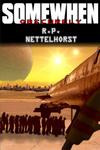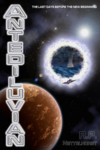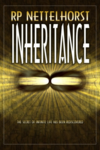Images of Saturn's moons in motion recently taken by NASA's Cassini spacecraft. Set to music from the Nutcracker.
Wednesday, December 23, 2009
Thursday, December 17, 2009
Friday, December 11, 2009
Reactionless Drive?
An Israeli researcher has proposed that it may be possible to use a certain quantum effect to generate propulsion without any change in mass. If true, then the science fiction dream of a "reactionless" space drive would be possible. Experiments must still be run, however. From an article published on arXiv and summarized on Technology Review, then referenced on Slashdot:
According to quantum mechanics, a vacuum will be filled with electromagnetic waves leaping in and out of existence. It turns out that these waves can have various measurable effects, such as the Casimir-Polder force, which was first measured accurately in 1997. Just how to exploit this force is still not clear. Now, however, a researcher at an Israeli government lab suggests how it could be possible to generate propulsion using the quantum vacuum. The basic idea is that pushing on the electromagnetic fields in the vacuum should generate an equal and opposite force. The suggestion is that this can be done using nanoparticles that interact with the vacuum's electric and magnetic fields, generating the well-known Lorentz force. In most cases, the sum of Lorentz forces adds up to zero. But today's breakthrough is the discovery of various ways to break this symmetry and so use the quantum vacuum to generate a force. The simplest of these is simply to rotate the particles. So the blueprint for a quantum propulsion machine described in the paper is an array of addressable nanoparticles that can be rotated in the required way. Although such a machine will need a source of energy, it generates propulsion without any change in mass. As the research puts it with magesterial understatement, this might have practical implications."
Subscribe to:
Posts (Atom)





